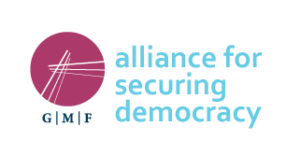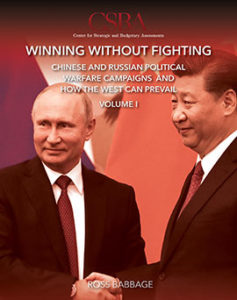Authoritarian governments increasingly adopt technology-centric national strategies and methods of internal governance. They control their societies through digital censorship, propaganda, and surveillance, and use these same tools to manipulate foreign societies, says Non-Resident Fellow at the German Marshall Fund’s Alliance for Securing Democracy.
 Their leaders prioritize the development of cutting-edge technologies in pursuit of government efficiency and military and economic advantage. Some analysts view this turn to “digital authoritarianism” as an approach designed to make authoritarians more durable at home and powerful abroad. However, authoritarians adopt technology-centric strategies primarily due to their own insecurity. Digital authoritarianism is not so much a strategic choice, as it is a strategic necessity, she writes in Strong Yet Brittle: The Risks of Digital Authoritarianism.
Their leaders prioritize the development of cutting-edge technologies in pursuit of government efficiency and military and economic advantage. Some analysts view this turn to “digital authoritarianism” as an approach designed to make authoritarians more durable at home and powerful abroad. However, authoritarians adopt technology-centric strategies primarily due to their own insecurity. Digital authoritarianism is not so much a strategic choice, as it is a strategic necessity, she writes in Strong Yet Brittle: The Risks of Digital Authoritarianism.
Brittle Legitimacy
Reliance on information control makes authoritarians brittle. Small chinks in their information control armor could have existential consequences, particularly during political or economic crises. The information and ideas most dangerous to authoritarians include:
• the identity of opposition groups and leaders and their levels of support;
• technical means for subverting control of communications and surveillance technologies;
• ideas about values that transcend state sovereignty, such as liberalism and human rights;
• evidence that the central government is not delivering efficient outcomes; and
• ideas that undermine the myths and narratives used to legitimize authoritarian rule or the power of the ruling elite.
 A democracy can build resilience to cyber and information threats through a variety of civil society and market-based interventions, Mansted adds. Digital authoritarians must rely on a more limited set of top-down policy tools. In this sense, while digital authoritarianism has strengths, it will also become a regime’s Achilles’ Heel. RTWT
A democracy can build resilience to cyber and information threats through a variety of civil society and market-based interventions, Mansted adds. Digital authoritarians must rely on a more limited set of top-down policy tools. In this sense, while digital authoritarianism has strengths, it will also become a regime’s Achilles’ Heel. RTWT
The National Democratic Institute has published “Data Analytics for Social Media Monitoring,” to help democracy practitioners better understand social media trends, content, data, and networks, notes Moira Whelan, NDI’s Director of Technology and Democracy. By sharing lessons learned and best practices, we hope to empower our partners to make democracy work online by helping them:
- Collaborate with local, national, or international partners;
- Understand different methods of data collection;
- Make the best use of mapping and data visualization;
- Analyze the online ecosystem;
- Detect malicious or manipulated content and its source;
- Understand available tools for all aspects of social media monitoring; and
- Know how to respond with data, methods, research, and more through social media.
The guide was backed by the National Endowment for Democracy (NED) and the Institute for the Future. The lead co-author, Nick Monaco, is also the Director of IFTF’s Digital Intelligence Lab, helps explain how these research techniques can illuminate the online world, Whelan adds. RTWT
Robin Hodess, chair of the Open Government Partnership Civil Society Steering Committee shares some of the risks the COVID-19 pandemic poses to democracies around the world (above) and the role of governments, civil society, the private sector and other members of the open government community to mitigate those risks.
 The Center for Strategic and International Studies (CSIS) hosted a virtual conversation on disinformation and political warfare during the coronavirus pandemic. Intelligence experts and disinformation scholars discussed the history of misinformation as a tool to create chaos and threaten democratic governments.
The Center for Strategic and International Studies (CSIS) hosted a virtual conversation on disinformation and political warfare during the coronavirus pandemic. Intelligence experts and disinformation scholars discussed the history of misinformation as a tool to create chaos and threaten democratic governments.
Experts cited Operation Denver, deployed by the Russian intelligence community in the 1980s, which claimed the CIA created the AIDS/HIV pandemic to target the gay community. They drew comparisons between misinformation used during that campaign to disinformation tactics Chinese officials are using today regarding the origins of the coronavirus pandemic.







